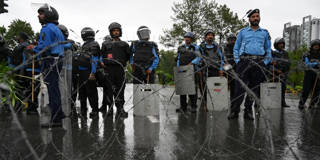The combination of surging Hindu nationalism in India, Kashmiri grievances against India’s government, Pakistan-backed jihadist groups waging hybrid warfare in Indian Kashmir, the new normal of India’s retaliatory military strikes on Pakistan, and growing nuclear stockpiles has turned Kashmir into a tinderbox. India’s decision to withdraw Kashmir’s special status threatens to be the spark that ignites it.
CANBERRA – Indian Prime Minister Narendra Modi’s government has decided to strip Kashmir of its special status – which granted considerable autonomy to the disputed Muslim-majority territory – and split it into two union territories (a status below that of states) that India will govern more directly. Kashmir’s special status, granted under Article 370 of India’s constitution, was essential to facilitate its accession to newly independent India over seven decades ago. In transforming its relationship with the territory, which Pakistan also claims, the Indian government has jeopardized regional peace and stability.

CANBERRA – Indian Prime Minister Narendra Modi’s government has decided to strip Kashmir of its special status – which granted considerable autonomy to the disputed Muslim-majority territory – and split it into two union territories (a status below that of states) that India will govern more directly. Kashmir’s special status, granted under Article 370 of India’s constitution, was essential to facilitate its accession to newly independent India over seven decades ago. In transforming its relationship with the territory, which Pakistan also claims, the Indian government has jeopardized regional peace and stability.